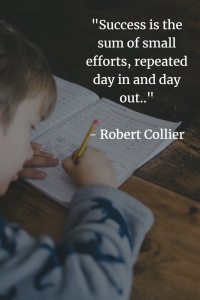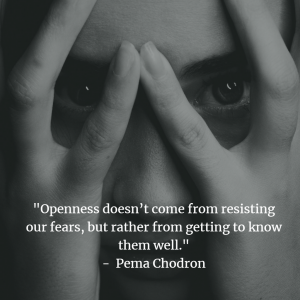Building Healthy Relationships
This is a 6-day pep talk plan on building a healthy relationship to incorporate into your routine of nurturing your child.

This is a 6-day pep talk plan on building a healthy relationship to incorporate into your routine of nurturing your child.
Aim: Remind the importance of healthy relationships and the value they bring to our lives.
Examples:
Today, let’s talk about the importance of healthy relationships and how they can make our lives more enjoyable.
- We are all products shaped by other people through our relationships and interactions. Having healthy relationships is like having a support system that makes life better. We are like one body with many parts. Look at it this way, can the foot say I am not a hand and do not belong to the body? It is not about having many friends but about having meaningful relationships. Sometimes, we might know many people, but we do not have a deep connection with any of them. You need to focus on the quality of your relationships, not just being busy or entertaining others. Meaningful connections bring more joy and fulfilment to our lives.
- It is essential to cultivate healthy relationships: It’s important to learn more about others and show genuine interest in their lives. Ask questions, listen attentively, and be there for them when they need support. Relationships are built on mutual understanding and trust. Remember, healthy relationships take time and effort. Make it a priority to nurture the relationships you have and build new ones. By doing so, you create a support system that brings joy, love, and strength to our lives.
- Start building healthy relationships as it is a great way to make life more enjoyable. Make it a goal to value and nurture your relationships every day so that you can have meaningful connections and joy!
Aim: Discuss the concept of social capital and the importance of nourishing relationships.
Examples:
Today, I want to talk to you about something called “social capital” and how it relates to building healthy relationships.
- Social capital refers to the relationship we have with others. Imagine you have a group of friends that you play with at school. You enjoy spending time with them, playing games, and helping each other. Social capital is like having a special bank account filled with this friendship and trust. When you have a lot of friends who care about you and you care about them, your social capital grows. These relationships can be in the form of friendships, family relationships, or even interactions with your classmates. It is a valuable resource like having a treasure chest of meaningful relationships that bring value to our lives. Just like we said yesterday, we are products of others, and building social capital is an essential part of personal growth.
- To develop and nourish social capital, it’s important to remember that building relationships takes time and commitment. It’s not about the quantity of relationships, but the quality of how we relate with others. You should focus on nurturing a few close relationships rather than having many acquaintances. Having a few close and dependable friends is more valuable than having a lot of superficial relationships. Take the time to check in with your friends, show interest in them, things they like or treasure, and be there for them when they need support.
- You need to make effort to nourish your existing friendships and build deeper connections. By nurturing your relationships, you’ll create a strong relationship that brings joy, support, and a sense of belonging to your life. Remember, relationships are a two-way street. It’s not just about what you receive, but also what you give to the others. By being a supportive and caring friend, you’ll strengthen your relationships even more.
Aim: Discuss the importance of empathy and understanding in building healthy relationships.
Examples:
Today, I want to talk to you about empathy and understanding and how they play a vital role in building healthy relationships.
- Empathy is the ability to understand and share the feelings of others. It means putting yourself in someone else’s shoes and seeing things from their perspective. Understanding is closely related, as it involves being open-minded and willing to listen and learn from others. When we show empathy and understanding, we create a safe and supportive environment for others. It strengthens your relationship and allows you to truly connect with the people around us.
- To practice empathy and understanding, you need to start by actively listening to others. Pay attention to their feelings, thoughts, and experiences without judgment. Try to understand their perspective and validate their emotions. When we show empathy, we build trust and foster deeper connections.
- While you practice active listening and understanding with your friends and family, you should be mindful of your own actions and words. Treat others with kindness, respect, and compassion. Remember that everyone has their own struggles and challenges. By practicing empathy and understanding, you’ll create a nurturing environment for your relationships to grow and flourish.
Aim: Explore effective communication and conflict resolution skills for healthy relationships.
Examples:
Today, I want to talk to you about effective communication and conflict resolution skills, which are crucial for maintaining healthy relationships.
- Let us talk about communicate. Communication is the foundation of any relationship. It involves expressing yourselves clearly, actively listening, and understanding one another. Conflict resolution helps us navigate disagreements in a respectful and constructive way. To improve your communication skills, start by using “I” statements to express your thoughts and feelings. Instead of saying, “You always…” try saying, “I feel…” This approach avoids blaming and promotes open dialogue. Also, remember to listen actively, giving your full attention to the person speaking.
- Let us talk about resolving disagreements. Disagreements is normal in relationships. The key is to address disagreements calmly and respectfully. Try to see the situation from the other person’s perspective and find a compromise that satisfies both parties. Remember, it’s about finding solutions, not “winning” arguments.
- Effective communication skills will strengthen your relationships and foster understanding. Keep practicing these skills, and remember, every interaction is an opportunity to learn and grow.
Aim: Discuss the importance of trust and honesty in building strong relationships.
Examples:
Today, I want to talk about trust and honesty, two essential ingredients for building strong and meaningful relationships.
- Let us talk about trust and honesty. Trust is the foundation of any healthy relationship. It means relying on someone and believing in their integrity. Honesty goes hand in hand with trust, as it involves being truthful and transparent in our words and actions.
- To build trust and be honest, start by keeping your promises and being dependable. Show others that they can count on you. Also, be honest in your communication. Speak the truth kindly and respectfully, even if it’s difficult.
- Remember, trust takes time to build, but it can be easily broken. Be consistent in your actions and communicate openly to strengthen trust in your relationships. Trust and honesty are the pillars of lasting relationships. They create a safe and nurturing environment for both parties. Trust is earned through actions, and honesty is a virtue to cherish.
Aim: Recap the importance of healthy relationships and provide tips for maintaining them.
Examples:
Today, I want to give you a quick recap of everything we’ve learned about healthy relationships and discuss some tips for maintaining them.
- In last couple of days, we’ve explored the significance of healthy relationships, effective communication, conflict resolution, trust, and honesty. Remember, relationships bring joy, support, and fulfilment to our lives. Healthy relationships are essential and maintaining healthy relationships requires ongoing effort and care. Let us look at some tips.
- Nurture Relationships: Take time to connect with others, show appreciation, and express your love and support. Make an effort to understand their needs and be there for them.
- Practice Empathy: Put yourself in others’ shoes and try to understand what they are thinking. Show empathy by listening attentively and checking their feelings.
- Communicate Openly: Be open and honest in your discussions. Share your thoughts, feelings, and concerns respectfully. Encourage others to do the same.
- Resolve disagreements: When disagreements arise, address them calmly and constructively. Seek compromise and find win-win solutions that respect everyone’s needs.
- Build Trust: Be reliable, keep your promises, and be true to your word. Trust is the foundation of strong relationships, and it takes time to develop.
- Show Kindness and Respect: Treat others with kindness and respect, even in challenging situations. Small acts of kindness go a long way in nurturing relationships.
- Remember, relationships require effort from both sides. Be patient, understanding, and always willing to learn and grow as healthy relationships enrich our lives and bring us joy. Embrace the opportunity to relate with others and create meaningful bonds.





